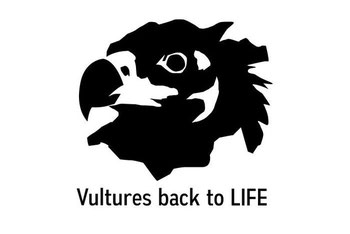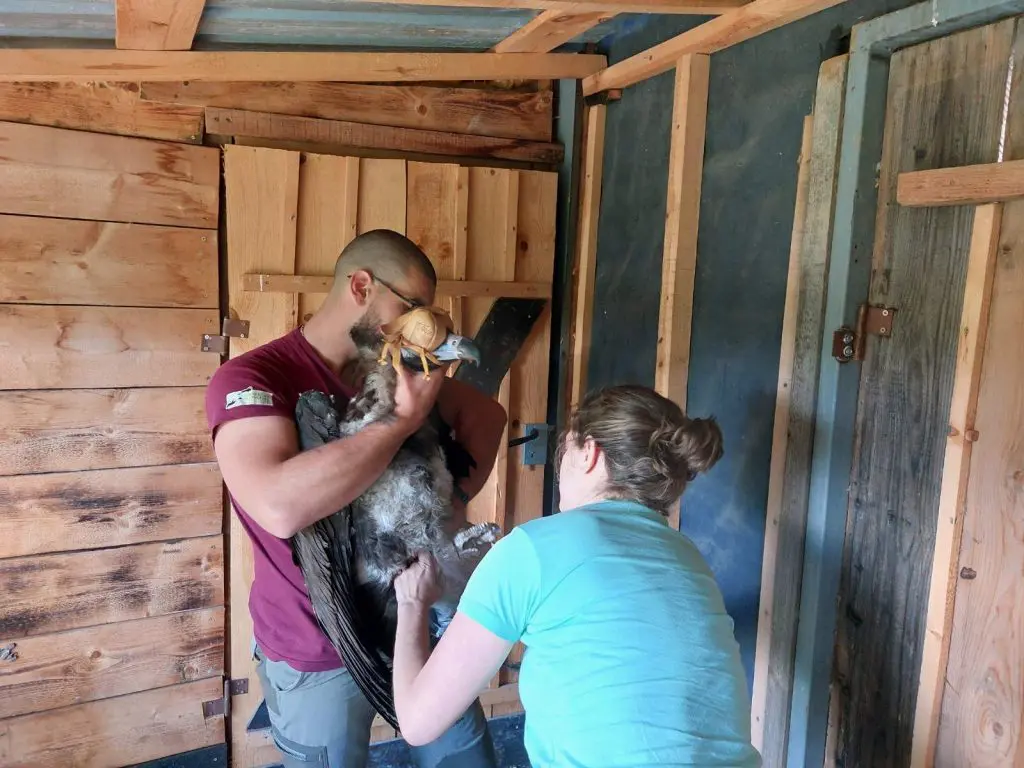
The breeding season for the Cinereous Vulture pair in the Green Balkans’ Wildlife Rehabilitation and the Breeding Centre has already started! If the breeding attempts are successful, the pair will support the Vultures Back to LIFE project, which aims to establish a nesting population of the Cinereous Vulture in Bulgaria, through the reintroduction of the species in the Balkan Mountain range in Bulgaria.
Cinereous Vulture pair breeding period

For the last few weeks, the team at the centre has been observing the birds courting quite often. The pair spends more and more time together, they roost close to each other in the nest and eat together. The male is also busy building the nest, using the sticks and branches that the team provides in the cage.
Watch the pair courting
Helping the pair
Since the pair is surely in the phase of courting, the centre has decided to help them by decorating the nest for them. In the wild, the Cinereous Vultures set up their nests on pine trees using branches, grass, moss and pine bark as material. The centre tries to keep up to their preferences, and they will continue giving sticks to them for the next couple of weeks.
The second breeding period for the pair
This is the second breeding period of the pair – last year their bond was excellent, and the female laid one egg, but, unfortunately, it was infertile. Let’s hope the pair will start copulating soon, and after a year of living together, they are now ready to become parents.
Vultures Back To LIFE

Led by the wildlife conservation charity Green Balkans, with activities also implemented by the Fund for Wild Flora and Fauna, and bringing together partners from Bulgaria, Spain and Germany, Vultures Back to LIFE aims to reintroduce the cinereous or Eurasian black vulture to Bulgaria. The team will transfer and release around 60 birds, some from captive-breeding, but mostly coming from wildlife rehabilitation centers in Extremadura (Spain) into the wild in Bulgaria as well as creating supplementary feeding stations and improving populations of wild herbivores, improving the nesting conditions and creating artificial nest sites and tackling some of the major threats to vultures in the country such as insulating electricity pylons and illegal use of poison in the nature.




